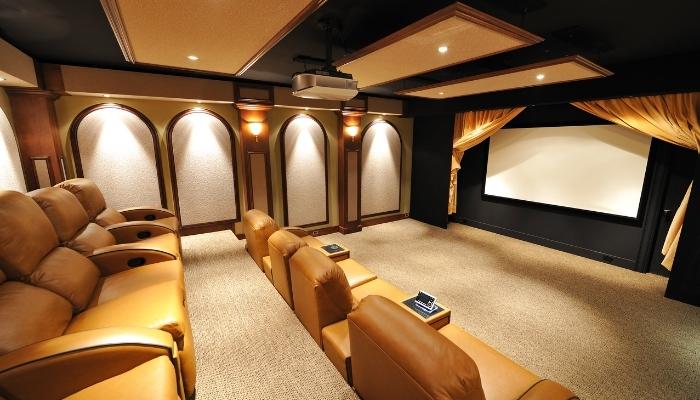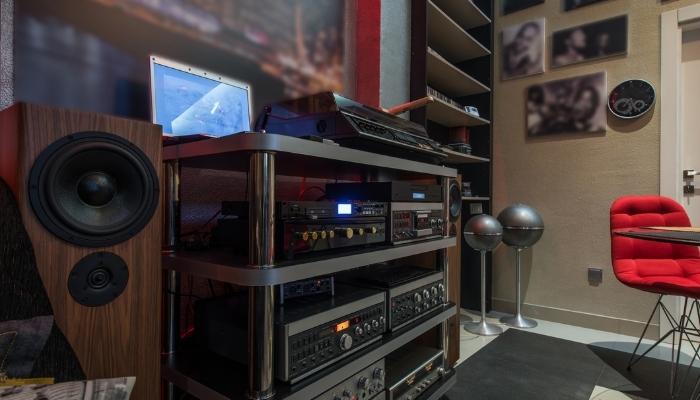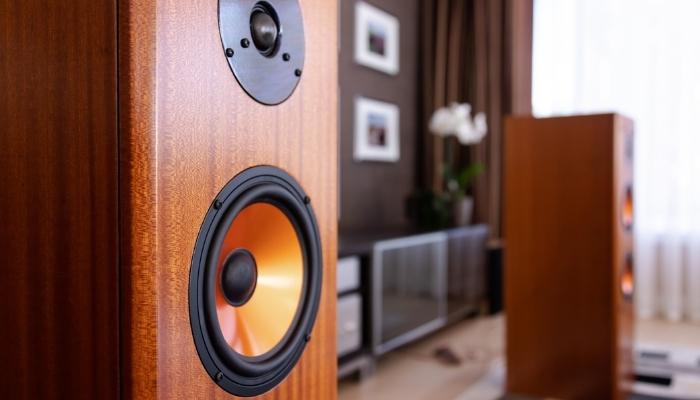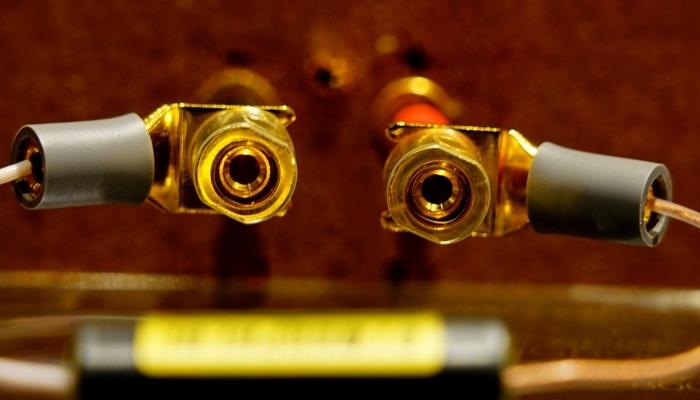A Hi-Fi audio system that wows every time seems like a pipe dream to many people. Only certain people with oodles of cash can have that sweet sound set up, right?
Wrong! In fact, there are quite a few myths and misconceptions about high-quality audio sound systems. You may know some, and others might surprise you, but don't worry about separating fact from fiction — that's our job! We'll shed light on the truth behind ten common audio myths!
1. Room Treatment is Optional

You might think that only professional studios or those with expensive sound systems need to worry about room treatment. But the truth is, if you want the best sound quality possible, you should absolutely be treating your room!
There are a few ways to do this, but some standard methods include using acoustic panels and bass traps. Acoustic panels help to absorb excess sound waves, while bass traps specifically target low-frequency sounds. Both of these can help improve the overall sound quality in your space.
Pro Tip: Every room has sweet spots and dead spots, but finding them can be tricky, so it's better to consult your custom integrators first!
2. Digital Sound is Worse Than Analog
This myth likely stems from the idea that digital audio files are of lower quality than analog ones. But the truth is digitization has minimal impact on sound quality. Digital files can actually be of higher quality than analog ones!
The key to remember is that it all comes down to the encoding. If you have a high-quality file that's been properly encoded, you'll likely have excellent sound quality. But the sound quality will suffer if you have a low-quality file with poor encoding.
Digital is more faithful to the original sound, but if you prefer the added warmth from analog distortion, that is entirely up to you.
3. Speakers Need Time to Break In
When you first get a new pair of speakers, you might be tempted to give them a little time to "break in" before really using them — which you've more than likely from certain manufacturers. The thought is to loosen up the driver surround and even out the frequency response by playing sound for a while before it gets to that sweet spot. But the truth is, speakers don't need to be broken in at all!
Higher mass drivers like woofers and subwoofers use spiders as stiffening agents instead of thicker, more rigid materials. These do lose stiffness in their suspension with use, but it usually happens within minutes — not hours or days. If you experience something off in your sound, air compliance inside the speaker cabinet is usually more responsible for impeding cone movement than the spider or surround.
4. High-End Speakers Are Only for Audiophiles

If you're not an audiophile, you might think that high-end speakers are a waste of money. But the truth is, anyone can benefit from a great pair of speakers and an incredible sound system.
Audiophiles might indeed be more particular about sound quality. But that doesn't mean that regular people can't appreciate the difference between a good pair of speakers and a great pair of speakers. If you have the budget for it, we say go for the latter!
5. Newer is Always Better

When it comes to audio equipment, newer doesn't necessarily mean better. There are plenty of older pieces of equipment that still sound great!
Part of the reason for this is that manufacturers have been perfecting their craft for decades. So, while newer equipment might have some flashy new features, older equipment can still hold its own in terms of sound quality. But if you're creating a brand-new system, it's a good idea to get the latest models for better compatibility.
Pro Tip: If your old speakers worked well in the past, especially with source components like a vintage turntable, you could easily enhance the sound with a new set of amps and speakers!
6. Power is the Most Important Factor
When shopping for speakers, you might be tempted to go for the ones with the most power. But the truth is, power isn't the most crucial factor to consider!
While it's true that more powerful speakers, can produce louder sound, that doesn't necessarily mean they'll sound better. Sometimes less powerful speakers can have better sound quality. So don't get too caught up in the numbers — listen to the speakers and choose the ones that sound best to you. Remember, good speakers should fill the room, but they should never feel overwhelming!
However, if you truly want powerful speakers, look for speakers with larger diameters and ones with higher wattage. Just make sure that the amp is of similar power or your speakers will struggle.
Pro Tip: Specs can be misleading, so don't rely solely on them — contact your professional integrators instead to find the speakers you prefer!
7. Hi-Fi Speakers Are All You Need

If you want excellent sound quality, you might think that all you need are high-fidelity speakers. But the truth is high-quality speakers are only one part of the equation. They also require a high-quality amplifier with a large power supply and high-fidelity music sources to get the best sound quality.
Each part of the system has to be of similar quality and compatibility to create that smooth sound. And don't forget about proper room treatment! So don't skimp on any part; balance out your needs and make the investment you crave — you'll be glad you did!
8. Don't Need Better Base
If you're happy with the sound of your current speakers, you might think there's no need to upgrade to a better pair. But the truth is, if you want the best sound quality possible, you should definitely invest in a good pair of base speakers!
Base speakers are specifically designed to reproduce low frequencies, which most regular speakers can't do well. So, add some subwoofers to your sound instead of sticking to a regular 2-channel system. Every listening experience benefits from better bass!
Pro Tip: Most 2-channel amps and preamps don't have subwoofer crossover, but professional technicians know how to make it happen so you can get the fullest sound!
9. Speaker Wire Has No Effect on Sound Quality
Using cheap speaker wires is tempting, especially when already investing significantly in the rest of your home audio system. But the truth is, doing so can harm your sound quality.
That's because cheap speaker wire is more likely to introduce electrical interference into your system. So, if you want the best sound quality, invest in some good quality speaker wire with adequate length, thickness, and composition to match your sound system.
Pro Tip: There's no need to do in-depth research on speaker wires; just leave it to your custom integrators!
10. Gold-Plated Connectors Are Better

Speaking of cables, another common audio myth that exists is the belief that gold-plated connectors sound better. This belief is likely because gold doesn't tarnish, so it's less likely to cause problems. But they're not the only connectors to make things sound better.
So long as you have a clean connection, the sound shouldn't be affected. However, if you use connections with dissimilar metals, some of the connectors can oxidize and deteriorate more quickly than if the same metals were used overall.
Pro Tip: Some gold connectors only have a thing coating of gold because of the cost and will therefore wear off faster — beware of what you buy!
Take Your Sound to the Next Level
Now that you know which common audio myths are absolute hogwash, nothing is stopping you from taking your sound to the next level! Our experts at Louisa's Electronics are ready to set you up with the home audio system you must hear to believe!
So, please don't waste a single second; contact us today to get started! We'll set you up with a consultation to see to your needs and make a plan of action!